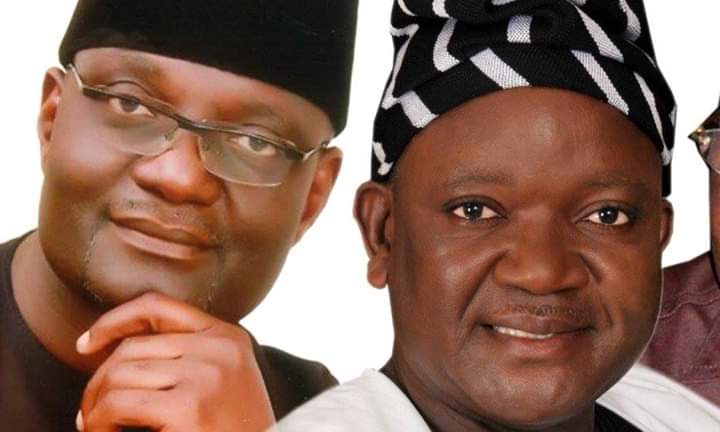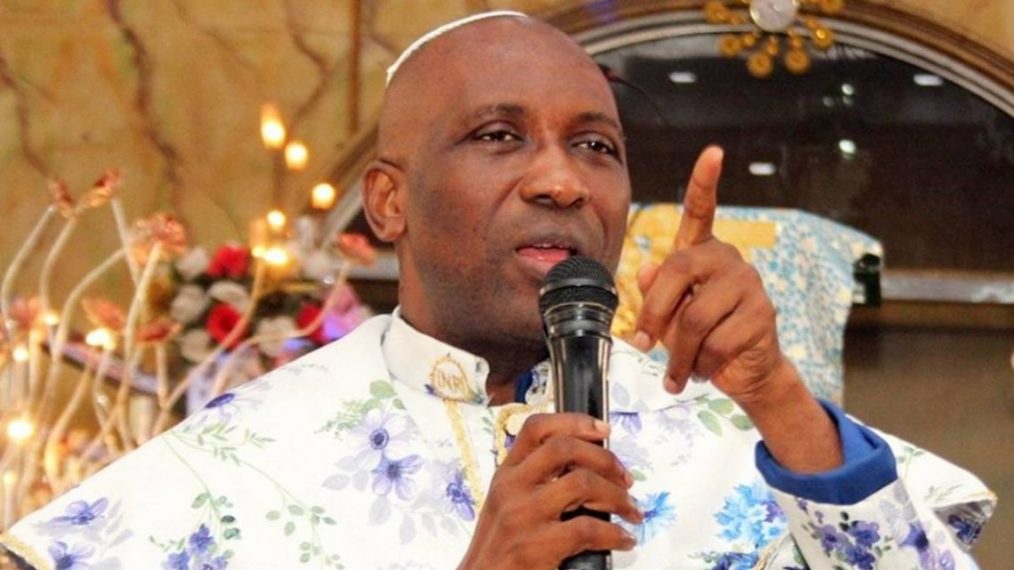Benue news
Jime, Ortom gubernatorial litigation: matters arising

By James Uloko
After about 10 months of anxiety-laden litigation, the gubernatorial contest between
Rt. Hon. Emmanuel Jime and Governor Samuel Ortom has been finally settled by
the Supreme Court. On Tuesday, January 21, Nigeria’s court of ultimate
jurisdiction dismissed Jime’s appeal for lack of merit and affirmed the election of
Ortom as the rightful governor of Benue state.
The Supreme court decision was the fourth loss in a row for Jime and his party, the
All Progressives Congress (APC), at the equivalent stages of the contest which
began with the general election in the first quarter of last year. They had earlier lost
out at the election itself, the Governorship Election PetitionTribunal and the Court
of Appeal.
With the Supreme court judgment, the stage is now set for the candidate of the
Peoples Democratic Party (PDP), who has already served his first term as
governor, to complete the constitutionally permissible second and final term of
four years until 2023. And with the anxiety and distraction of litigation behind him,
Ortom can now, without doubt, face the task of governance with more focus and
single mindedness. On his part, Jime will now be afforded more time to ponder his
political future.
For the rest of us, as Benue people, there are a number of lessons to learn from the
gubernatorial legal challenge.
First, in choosing the legal option, Jime and his party did what was expected of
them – to seek redress within the ambit of the law for any perceived injustice
suffered. The story would have been different today if they had done otherwise by,
say, going for self-help. The contemporary history of politics in Nigeria and
elsewhere is replete with cases of post election mayhem inflicted on the streets and
communities, by contestants who felt they were robbed of victory but lack faith in
the legal channels of redress. Fortunately, Jime, with the benefit of his calling as a
lawyer and experience as a former state and Federal legislator, decided to exercise
his rights by heading to the courts.
But the exercise of such rights should be done with absolute wisdom and caution.
Some politicians who lose at the polls instinctively approach the tribunals hoping
that somehow, somewhere along the line, the tribunal or the courts will award them
victory based on legal technicalities , political patronage or federal might. I dare
say that the Nigerian judiciary, at least in the democratic dispensation since 1999,
has been largely an institution of integrity that dispenses justice based on the
provisions of the law. In the few cases where there appears to be travesty of justice,
the fact is almost always that those who lose out are so blinded by the thick veil of
sentiment and/or partisanship that they do not bother to look at the legal basis for
the court’s decision.
It is, therefore, instructive that, before seeking justice from the judiciary, the
political contenders should do their home work properly. This includes embarking
on adequate pre-election consultations and campaigns, voter education, compliance
with electoral laws, assemblage of unassailable evidence and competent legal
team. Failure to do this amounts to laying the foundation for electoral and legal
defeats that would be undeservedly blamed on the judiciary.
Another reason why caution should be exercised in resorting to litigation is that it
is very expensive to all concerned (except, maybe, the legal counsel). Huge
resources in terms of time, talent and treasure, are expended by all parties on
litigation to the detriment of other developmental endeavours. It is worse where the
litigation involves a sitting President, Governor, Council Chairman or legislator. In
that case, the anxiety and distraction created by a possible negative outcome could
be hugely retarding and destabilizing of governmental activities and development.
Therefore, while it is alright to encourage the culture of resort to legal redress as
opposed to jungle justice, it is better still to develop the culture of conceding defeat
in electoral contests where there appears to be no iron cast case against the victor.
It is also important to develop the virtues of being magnanimous in victory and
sportsmanlike in defeat.
Governor Ortom has been adept at deploying these virtues. In each of his victories
in the course of Jime’s legal challenge, and even before, he has consistently
extended the olive branch to his opponents and shunned any expression ofbitterness. He has always called on all Benue people, irrespective of political
differences, to join hands with him to move the state forward.
This is an exemplary leadership and a call worth heeding.
Hon Uloko is the Special Adviser to Governor Samuel Ortom on Information and
Orientation.
























